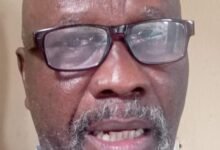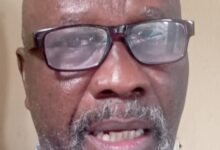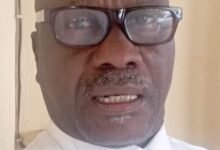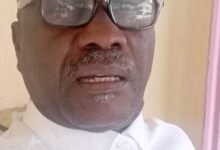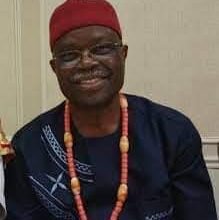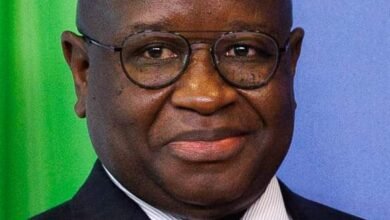
FEYReP AT SEVEN: What Is The Essence of Our Shared Humanity if We Cannot Help Our Brothers And Sisters. …Mrs Martha Udom Emmanuel
Her Excellency, Dr. Mrs. Martha Udom Emmanuel, wife of Akwa Ibom State governor, is the founder of Family Empowerment and Youth Reorientation Path-initiative (FEYReP), a non-governmental organization established in 2015. In the seven years of this well-thought-out initiative, the organization has lighted dark pages of many indigent families and vulnerable demographics in Akwa Ibom. In this interview with the Martha’s Diary crew, Her Excellency bares her mind on the success story of FEYReP at seven, challenges and what the future holds…
Excerpts:
How has the journey been in the last seven years of FEYReP?
The last seven years have been a fruitful journey. When we started I didn’t know it will get to this level, so I return thanks to God, my husband and to the entire staff of FEYReP for the amazing work done. I’m grateful for having a wonderful team who have sacrificed time and ensured FEYReP humanitarian efforts are felt in every nook and cranny of the state. It has been seven years of being intentional in our approaches to solving some of the vexing social issues in our society as well as facilitating sustainable economic development programmes for women and youths, especially those in underserved communities.
Your Excellency, let’s look at Sexual and Gender-Based Violence (SGBV) where you have been quite proactive and resolute in the fight to see an end to. so far, what has been the feedback?
GBV is another success story we have recorded in FEYReP. As you are aware, there are many people who have been abused that we have rehabilitated. We have done a lot of campaigns and advocacy in all the local government areas of the state and we can confidently say we have made tremendous impact. This is evident in the six convictions we have procured against perpetrators of rape and other domestic violent crimes as well the 217 active court cases we have ongoing. The spike has reduced even though we still have pockets of issues but we are on course to rid the state of this menace.
Would you say the efforts to break the culture of silence among survivors of sexual and gender- Based violence has reached the nooks and crannies of the state?
Indeed it has! One of the many milestones we have achieved is in the breaking of the norms that perpetuate the culture of silence. We were able to achieve this by our relentless advocacy in urban and rural communities, forging of strategic partnership with traditional institutions, Faith-based organizations, civil groups and other stakeholders.
We have also been able to secure partnership with international organizations like the United Nations Population Fund ( UNFPA) and the Norwegian Governments. Part of this partnership had helped birth FEYReP-UNFPA prevention and response center which came with a 24-hour toll-free call centre. We also partnered with Women Health and Action Research Centre (WHARC) to foster community dialogue and engagement on sexual and Gender-Based Violence in select communities in Akwa Ibom State. All this efforts have helped to deepen conversations around sexual and gender based violence and break the chains of the culture of silence.
Let’s talk about the “Girls Uphold Your Dignity” programme of FEYReP. Everywhere around the world, there is a growing need to support the education, health and safety of the girl-child, especially at the critical point of their development which is during adolescent years. This you did by initiating an attitudinal reorientation programme, tell us about the journey so far?
The “Girls Uphold Your Dignity” program was created for the sole purposes of raising awareness over the developmental crisis faced by adolescent girls, with the aim to helping them scale through vulnerabilities to reach their full potentials. Our spirited advocacy to spotlight and raise awareness over some of the vulnerabilities and pressures faced by adolescents girls have helped them disregard involvement in premarital sex and social vices. We also mentor, teach them proper hygiene and give advise on suitable career paths.
You also came up with the Boy-child advocacy, what prompted this and how has the impact been ?
What is the point in helping the girl-child grow when the possibility of them being abused by the boy-child is a constant reality? We needed to the draw the attention of the boy-child to the self-immolating dangers of drug and substance abuse, cultism and even rape. We have recorded much success as many who were derailed to join cultism, drugs and bad associations have come to us to seek help and rehabilitation. I must note that from this programme, other governors’ wives have replicated same in their respective states. That is a plus for us.
Let’s talk about the partnership with the (NDLEA). Why was this collaboration with the agency necessary?
It became imperative at some point for us to enter into partnership with NDLEA because they are saddled with the task of fighting drugs trafficking and rehabilitation of drug abusers. Most of the boys who turned a new leaf as a result of the boy-child intervention advocacy programme were active users of drugs and illicit substances. It has been a rewarding experience to have joined forces with them to tackle drug abuse among young boys.
You have built and delivered 63 houses to indigent families through the initiative christened Shelter of Hope. How do you feel to have achieved this milestone?
I feel happy and fulfilled eventhough we have not yet reached our target. We will not rest on our oars until we achieve the number we want.
Can you tell us about any particular beneficiary of that project whose case really melted your heart?
Ans: There are many. But the one that broke my heart more was a woman from Itu Local Government Area of Akwa Ibom State. She was ridiculed as mma ‘Atahaufok’, loosely translated “the woman who lives in a shack”. Her living condition was pathetic. Inside the leaking roof of that one room were her livestock. She had lived there for ages until we intervened. I must say that that particular intervention gives me joy each time I reminisce on it.
Maternal mortality and infant morbidity is a cause for concern the world over and you were quite responsive in initiating a Martha’s Pregnacare programme with the aim to promoting healthy pregnancy and safeguarding mother and child. What motivated you to initiate the programme?
The programme was borne out of the need to address the high rate of maternal mortality and child morbidity. Through this programme, we have enlightened and encouraged women along the path of pregnancy safe practices, especially those in the rural areas. Some of which are routine antenatal care, safe nutrition for mother and child, disabuse their minds on the wrongfully held belief of caesarian section and to limit patronage of traditional birth attendants during child delivery. We also prioritize provision of delivery kits to them during our programme. So far the programme which is in its tenth edition, have had over 3000 women drawn from rural communities as beneficiaries.
The Back-To-School Programme for orphans and Vulnerable Children (OVC) has recorded immense success. How would you rate the children’s progress?
A huge success! It’s amazing seeing young children that were in primary school grow through secondary and up to tertiary level. The sense of fulfillment that comes with this effort cannot be expressed. We have many of the children in tertiary level and some are graduates. It’s Interestingly to point out that one of them is a barrister.
Your health interventions have touched many families. How do you feel being able to do these much?
There’s no quantifying the exhilaration one feels at being able to add value in the lives of people, people who never expected help or have lost hope. There are cases you see and you can’t but help. We do this without blowing trumpets. And we are poised to do more. What is the essence of our shared humanity if we cannot help our brothers and sisters thrive in the best possible ways we can make happen?
Why have you invested much of your energy into empowering the womenfolk ?
(Cuts in); We will never stop empowering women because the society and family would hardly make progress without the empowered woman contributing to it. Even though our emphases are more on economic empowerment, there is also need for a holistic approach to empowerment of women which will ensure breaking of glass ceiling and stereotypes in order for them to lead productive lives in competitive environments.
As you are winding down as the irst Lady of Akwa Ibom state, how would you want to be remembered?
The thing about charitable works is that they outlive us. I would want to be remembered through the contributions I have made in the lives of others.
Where do you see FEYReP in the next years to come?
Ans: I see greatness in FEYReP. What we will achieve in years to come will make our present efforts thaw out in comparison.
Do you have any fear that your successor may not be able to match or surpass the bar you have raised?
No! I have no fear whatsoever. My job in this role will soon be over. Hers will soon begin. My passion may not be what interests her. In any case, we are not in competition. But I believe that the one who comes after me will surpass expectations. It’s the prayer of every good parent that the children surpass their achievements.



